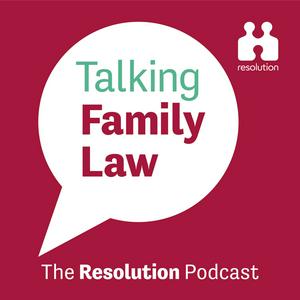Covert Recordings and Tracking Devices
To start our season with a bang, we are joined by Natasha Watson, Head of Law in Brighton & Hove City Council, and Darren Howe KC, 1 Crown Office Row Brighton, to discuss covert recordings and tracking devices. Natasha was a member of the Family Justice Working Group who developed the Family Justice Council guidance into covert recording: https://www.judiciary.uk/related-offices-and-bodies/advisory-bodies/family-justice-council/resources-and-guidance/covert-recordings-in-family-law-proceedings-concerning-children/. Note, Natasha joined us in her personal capacity today and was not speaking on behalf of the Family Justice Council. At the outset, Natasha reminds us of the words of then Mr Justice Jackson as long ago as 2016 about recordings in M v F (Covert Recording of Children) [2016] EWFC 29 https://www.bailii.org/ew/cases/EWFC/HCJ/2016/29.htmlIt is almost always likely to be wrong for a recording device to be placed on a child for the purpose of gathering evidence in family proceedings, whether or not the child is aware of its presence. This should hardly need saying, but nowadays it is all too easy for individuals to record other people without their knowledge. Advances in technology empower anyone with a mobile phone or a tablet to make recordings that would be the envy of yesterday’s spies. This judgment describes the serious consequences that have arisen for one family after a parent covertly recorded a child in this way.Covert recordings are a form of hearsay evidence, which is why the evidence is not automatically admissible. Natasha and Darren wrestle with where the balance will fall when the Court is considering the abuse of privacy and potentially abusive nature of the recordings, set against the fact that this form of evidence can be determinative of particular fact. They advise that you need to ask yourself:whether the recording is relevant to one of the disputed issues in the case?is the recording reliable or could it have been modified?what is proportionate to be admitted as evidence.They caution us to consider the context of the recording and the completeness of the recording, when considering what the recording prove. Natasha draws our attention to Appendix 3 of the guidance which provides a useful summary of the Court’s approach. In respect of recordings of children, the issue is about whether interviews by an adult (well-meaning or not) that has an influence on what the child says. The result is that the Court cannot accept the reliability of what was said. We discuss how the recording has often already been taken before lawyers are instructed, which results in the client providing a recording that they think proves their case, but you take the view may in fact have a detrimental impact on their case. Darren reminds us all of our duties of full and frank disclosure, and specifically the guidance from the Bar Council on ‘Disclosure of Unhelpful Material in Family Proceedings (Children)’ https://www.barcouncilethics.co.uk/wp-content/uploads/2017/10/disclosure-of-unhelpful-material-1-1.pdf Darren draws our attention to the judgment of HHJ Middleton-Roy in Re TQC, (Domestic Abuse: Findings) [2024] EWFC 279 https://www.bailii.org/ew/cases/EWFC/OJ/2024/279.html As technology has advanced, so has the ease by which tracking devices can be installed on mobile devices. The evidence of both parties in this case suggests that both parties consented to an app being downloaded to their respective devices so that they could monitor the movements of the other party. The evidence in this case leads the Court to the conclusion, however, that the father used the tracking app on the mother's mobile device as part of a pattern of behaviour designed to deprive the mother of the means needed for her independence. Darren reminds us that digital evidence is not as reliable as it used to be and the glitches, flaws, splices, chops. We conclude with a discussion about whether the time has come for all meetings with professionals to be recorded.


